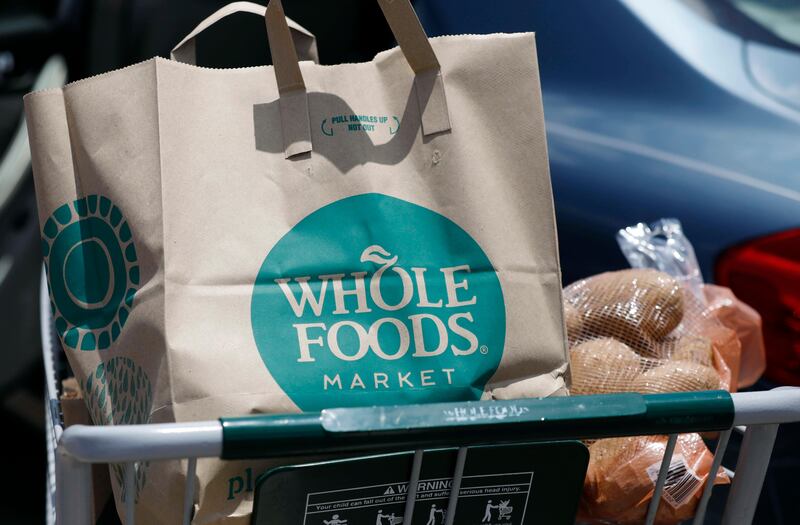Amazon.com has cleared two of the biggest hurdles it needed to close its US$13.7 billion (Dh50.3bn) acquisition of Whole Foods Market, with approvals from a US regulator and the grocery chain's shareholders.
The US Federal Trade Commission said in a statement it would not pursue its investigation into the proposed merger further after reviewing whether the deal would substantially lessen competition or constituted an unfair method of competition.
Amazon said it was on track to close the merger, expected sometime this year. Earlier on Wednesday, Whole Foods said its shareholders voted in favor of the deal.
____________________________________________________________________
Read more:
[ E-commerce giant Amazon hangs over US retail sector ]
[ E-commerce in the UAE: is 2017 the year it finally takes off? ]
[ Amazon reminds investors that dominating e-commerce has a price ]
_____________________________________________________________________
Buying Whole Foods gives the world's largest online retailer a foothold in the $700 billion US grocery market, key for it to grab a greater share of shoppers' wallets. It also gives Amazon more than 465 brick-and-mortar stores where it could showcase products and ready packages for home delivery.
Antitrust experts had expected the deal to win government approval because Amazon sells few groceries currently and Whole Foods itself makes up a small fraction of US food sales.
Some critics, however, had argued that the government could attempt to block the merger since Amazon might leverage its retail and supply chain power to dominate a new market.
"You don’t normally see cases on theories that are speculative," said Richard Feinstein, who headed the FTC's bureau of competition under former President Barack Obama.
That has not stopped some in political office from questioning the merger.
Last month, the top Democrat on the US House of Representatives' antitrust subcommittee voiced concerns about the plan and sought a hearing to look into the deal's impact on consumers.
Amazon has frequently been in the crosshairs of President Donald Trump, who last week took aim at the company over taxes and jobs, without offering evidence. The retailer's CEO, Jeff Bezos, owns the Washington Post, which Trump has also frequently criticized.
The FTC opted not to make a second request for information about the deal, which is often a burden for companies that have to provide extensive information that can drain time and resources to collect. Such requests have in the past led to concessions so a merger gains government approval.
"The FTC quickly decided that the combination did not create a significant danger of lessening competition in any market," Erik Gordon, a business professor at the University of Michigan, said.
Consumer Watchdog, a group that had urged the FTC to take action to block the merger, said in a statement it was disappointed. "Apparently the only way to hold Amazon accountable for its abuse of consumers is at the state level," the group said.






